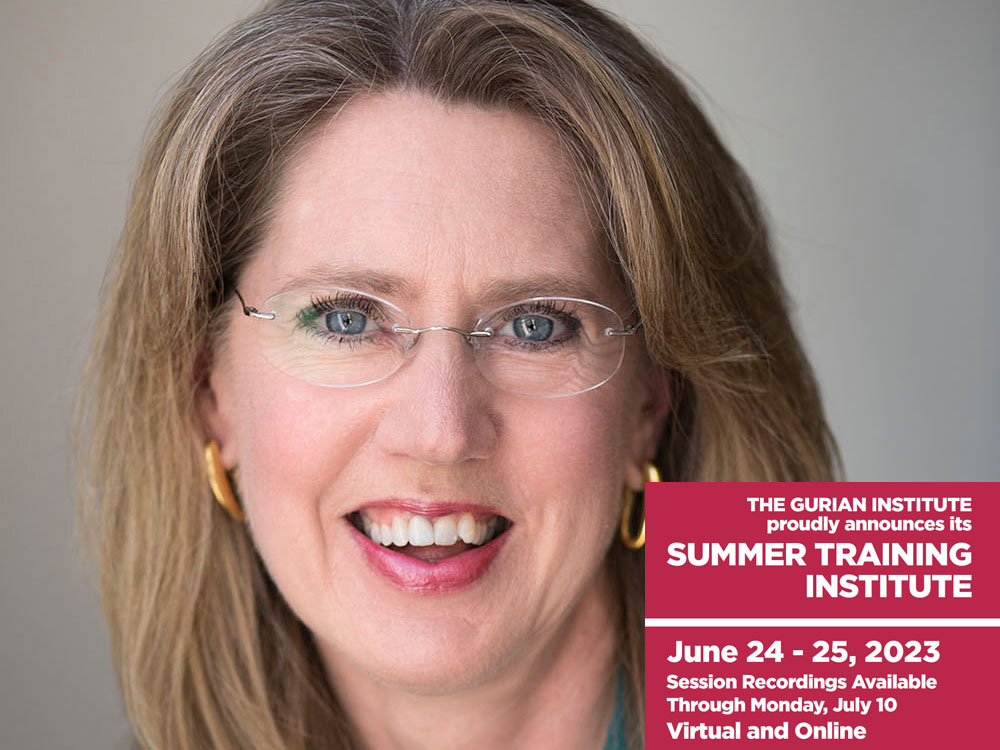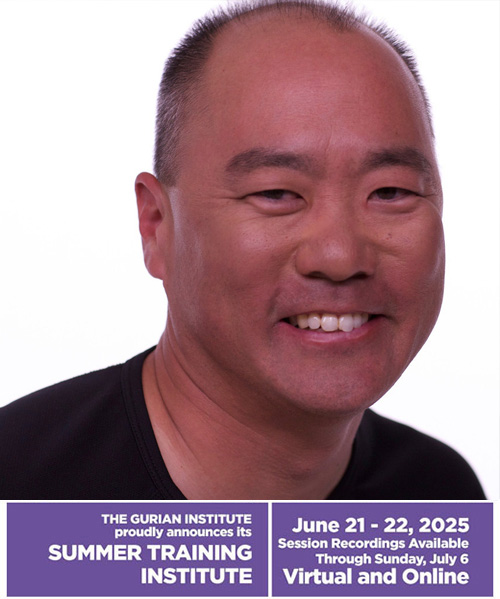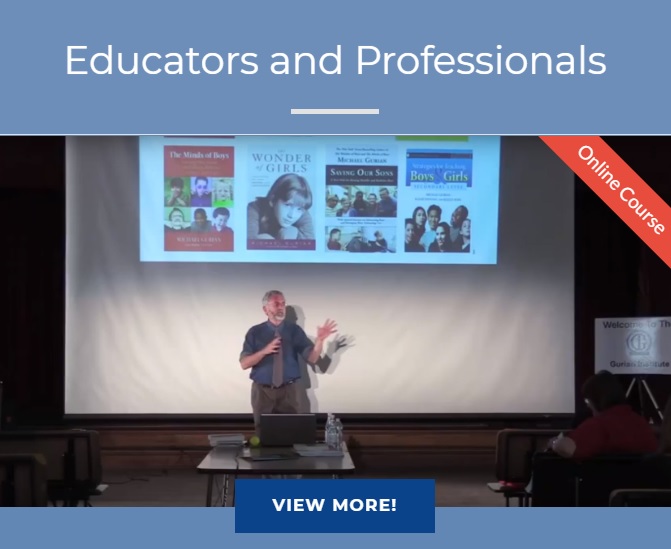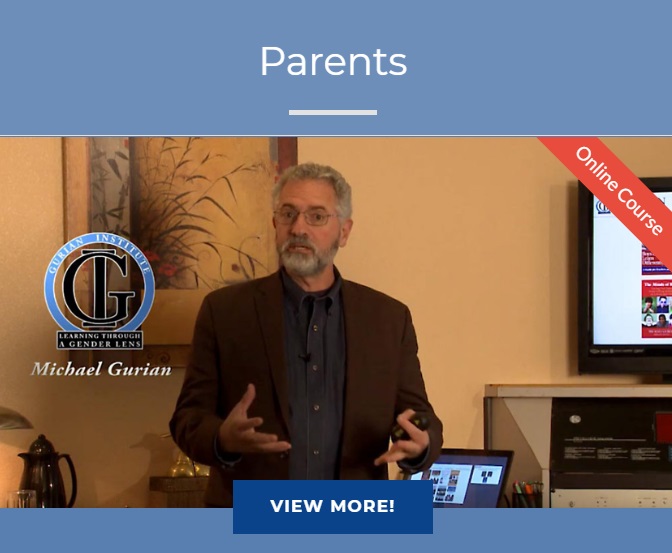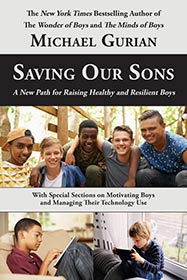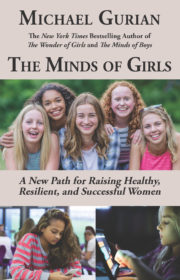Our Summer Institute is around the corner! GI Program Director Eva Dwight is offering a new workshop at this year’s SI, “Thinking ‘Outside the Box’: A Child-Focused Definition of Success.” Today’s blog post is authored by Eva about this leading edge subject.
We hope you’ll join us at the Summer Institute. It will be virtual on June 24-25, so anyone can join from anywhere. To learn more and to register, click: https://gurianinstitute.com/events/gurian-summer-institute-2023/. Groups are welcome. To register a group of five or more, email Gail at info@gurianinstitute.com. If you can’t come on the weekend, no problem. The videos will be available for participants for three weeks. Now, enjoy Eva’s post.
Get good grades. Graduate at the top of your class. Get into a good university. Earn your degree and become a professional. This limited picture of success has been crafted by adults with good intentions, but students who embrace it face extreme pressure and a sense of failure if they don’t manage to “check all the right boxes.” Moreover, many students’ unique talents and thinking patterns put them squarely “outside the box.” Knowing that they’re not cut out for that particular life path puts them at odds with the messages they receive from adults, which can result in feeling that, “I don’t belong,” or, “There’s something wrong with me.”
In my 20 years as a junior high counselor, these were the students I worked with the most. The ones who were already so discouraged that by 7th and 8th grade, the boxes they were checking looked more like:
- I showed up.
- I got to see my friends.
- I got through the day.
When adults see students underperforming, we try to get them to see the big picture that we think they want. We have good intentions. We want them to feel successful, to be successful! So we try to help them look down the road and see how their actions today might keep them from experiencing success in adulthood. The problem is–and we know this but we ignore it when we’re stymied by kids’ lack of engagement–kids have a difficult time seeing that far down the road. Their cognitive development doesn’t allow for it on more than a very superficial level. What they are able to focus on is right now, today, this moment.
And if right now, today, this moment, they don’t feel a sense of belonging and significance, then we’ve already lost them. If they believe that we don’t see them as a valuable contributor to the classroom and the learning experience, they’re likely to also believe that they don’t have anything to contribute…and by extension, that the reciprocal is true: that we/the school have nothing to offer them, either.
If we want disengaged students to re-engage, we need to start by seeing the “small picture” of their NOW, and respond to that with curiosity, connection and encouragement.
**Curiosity: The behavior that frustrates, irritates or even derails us is sending a message: I want to belong. I need to feel significant. Positive Discipline Trainer Jody Malterre has created an activity called “Strengths Detective” that can help us get curious about what skill, talent or strength the challenging behavior might be pointing to, and how we might blow on that spark so it ignites into a flame of contribution.
For example, you may have a student who’s pretty defiant. Maybe they resist following classroom procedures or outright tell you, “No, I’m not doing ___.” It’s possible that this behavior makes you feel angry and challenged, and you might be concerned that this student could influence others to be rebellious, as well.
If you can be a Strengths Detective here, you might notice that this child’s defiance demonstrates a strong sense of internal power and self-advocacy. They may not be using these strengths in a socially useful way, but maybe with connection and encouragement, you could help them turn a behavior that is currently a liability into an asset.
**Connection: Noticing behavior without judgment and validating strengths can help build connection, which is foundational to encouraging change. In the case of this student, that might sound like, “I notice that you’re not afraid to tell me when you don’t want to do something, or when you want to do a certain procedure in a different way. I think it takes courage to stand up for what you think is right for you. Advocating for yourself is a really important skill that we all need to have.”
**Encouragement: At the heart of the word encouragement is cour, which means heart, and to encourage means to inspire with courage, spirit, or hope. How can you take the next step toward encouraging this child to use their skill in a way that will serve them now, and in their future? Some possibilities include:
*Invite them to brainstorm—with you–some possible ways they could advocate for themselves that would be respectful to themselves, to you and to the classroom learning community.
*As you brainstorm together, you can explore how they learn, what they want to learn, and how they can best demonstrate their learning.
*What do they need that might be different from your typical way of doing things?
If you show genuine interest in who they are as a person and as a learner, they’ll feel that energy of connection and hopefully, collaborate so you can both get what you need as learner and teacher.
This, of course, is not something you can stop and do in the middle of class, so it may take some creativity on your part to engineer a time when you and the student can have a genuinely collaborative conversation. It will be well worth it! This child who may be driving you crazy desperately needs to see him/herself as an important contributor to the learning community. Finding and leveraging their assets is key to helping them feel and be successful NOW. TODAY. IN THIS CLASS.
AND…helping them recognize and leverage their assets in socially useful ways will help them define who they are, who they want to be (notice I said “who,” not “what”) and what they want their life path to look like. They don’t need to check our boxes. They’re capable of creating their own.
In my session at the Gurian Summer Institute, Thinking ‘Outside the Box’: A Child-Focused Definition of Success, we’ll use Strengths Detective and other strategies for re-engaging discouraged students. We’ll also practice strategies for shifting our success paradigm so that all of our students feel valued and capable in charting their life path. I hope you’ll join me and other Gurian Institute Trainers for a weekend of learning and inspiration! To learn more about the Summer Institute and to register, click here: https://gurianinstitute.com/events/gurian-summer-institute-2023/.
Here are all of Eva’s workshops at our Summer Institute:
The Human Brain: Setting the Stage, with Eva Dwight, M.ED. and Dr. Michael Gurian. Body, mind, and soul are not three isolated systems. Intricately woven together, they give us the human experience. In our culture now, our children’s bodies, minds, and souls are experiencing significant stress. This opening session of the conference will link our weekend of training to the deep issues of our time in schools and neighborhoods, and provide a primer on the amazing human brain–both its natural resilience and its potential fragility.
Boys and Girls Learn Differently – Two-Part Strategies Session, with Eva Dwight, M.Ed.,Gurian Institute Master Trainer. This two-part session will give participants a tool box full of practical strategies that can be adapted for use in any classroom to increase teacher effectiveness and make sure the needs of both boys and girls are being met. The workshops will model the strategies as if in a classroom setting. This two-part session is a requirement for applicants for Gurian Institute Trainer Certification and includes specific innovations for coeducational classrooms and for single sex classrooms and academies.
Thinking ‘Outside the Box’: A Child-Focused Definition of Success,with Eva Dwight, M.Ed.,Gurian Institute Master Trainer. A limited picture of success, crafted by adults with good intentions, can force students face extreme pressure and a sense of failure if they don’t manage to “check all the right boxes.” Sometimes, too, students’ unique talents and thinking patterns put them squarely “outside the box.” They feel that, “I don’t belong,” or, “There’s something wrong with me.” How can we honor each student’s unique gifts and celebrate the contribution they can make to the classroom and school community? In this interactive session, we’ll explore strategies for shifting our success paradigm so that our students feel valued as they chart their own life path.
Eva will also lead our Four Hour Certified Trainer Certification session on Monday morning June 26 via Zoom.
To learn more about the Summer Institute and to register, click here: https://gurianinstitute.com/events/gurian-summer-institute-2023/. To register groups of five or more, write Gail at info@gurianinstitute.com.



